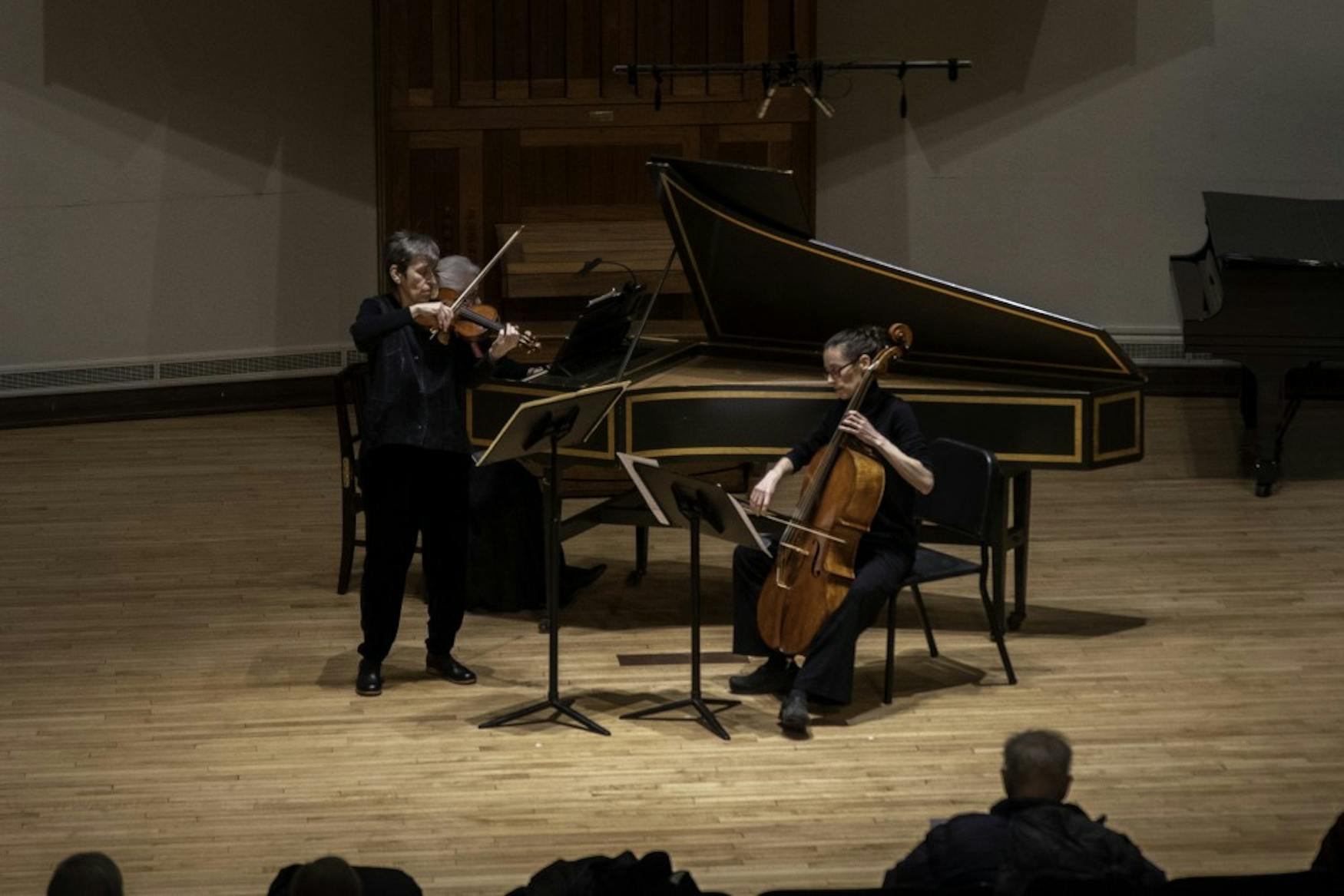WSRC showcases female composers
Women composers are notoriously little-known. Nevertheless, last Sunday the Women and Music Mix of the Women’s Studies Research Center sponsored a concert entirely of pieces composed by women. Appropriately titled “Composing Women,” this concert reflects the goal of the Women and Music Mix to study the contributions of women to music and bring knowledge of these contributions to a wider public. This concert was the fourth in a series dedicated to Alfredo and Demitra DiLuzio, the aunt and uncle of WSRC co-chair Rosalie Ripaldi Shane. The past concerts of this series were also exhibitions of female composers, but this was the first concert whose name reflected this.
For those wishing to learn more about the composers and performers, the program was generously detailed, and the concert host Dana Maiben provided additional information before each piece was performed. Incidentally, Maiben also performed in and composed several pieces in this concert.
All of Maiben’s pieces had poetic vocals along with Baroque-style music. Her first piece, “Fog Song,” was conceived when she was walking through the Schwarzwald, or the Black Forest of Germany, still thinking of herself as a “tunesmith” rather than a genuine composer. Her other pieces in this concert were musical interpretations of existing poems: “Canciones de Amor” by Sor Juana Inés de la Cruz and “The Green House” by Martha Collins.
The other composers of the event stretched across the ages. Isabella Leonarda was an Italian nun in the 17th century and one of the most prolific female composers of her time as well as the first to publish sonatas. Rebecca Clarke was active during the early 20th century; she entered her music into a chamber music competition and tied for first place with Ernest Bloch, a well-known composer, shocking the audience. Unfortunately, her future compositions were sporadic due to lack of encouragement. Finally, Canary Burton, born during World War II, is an award-winning classical and jazz pianist and composer who is still active today.
Due to the lack of advertising and student performers, few students attended the event. Hopefully the Women and Music Mix will make a greater effort next year to attract a wider audience.



Please note All comments are eligible for publication in The Justice.